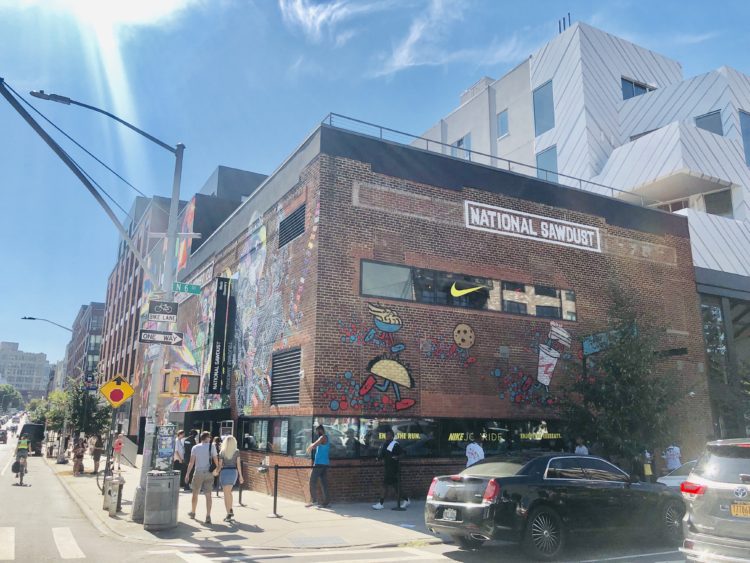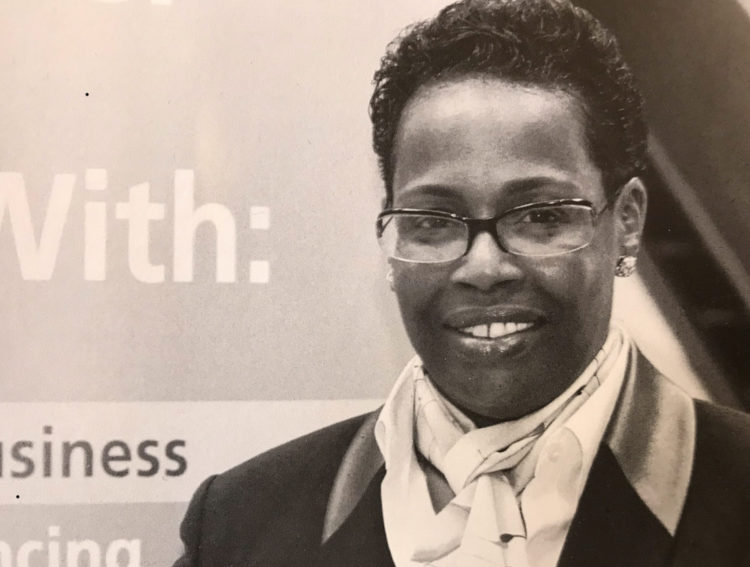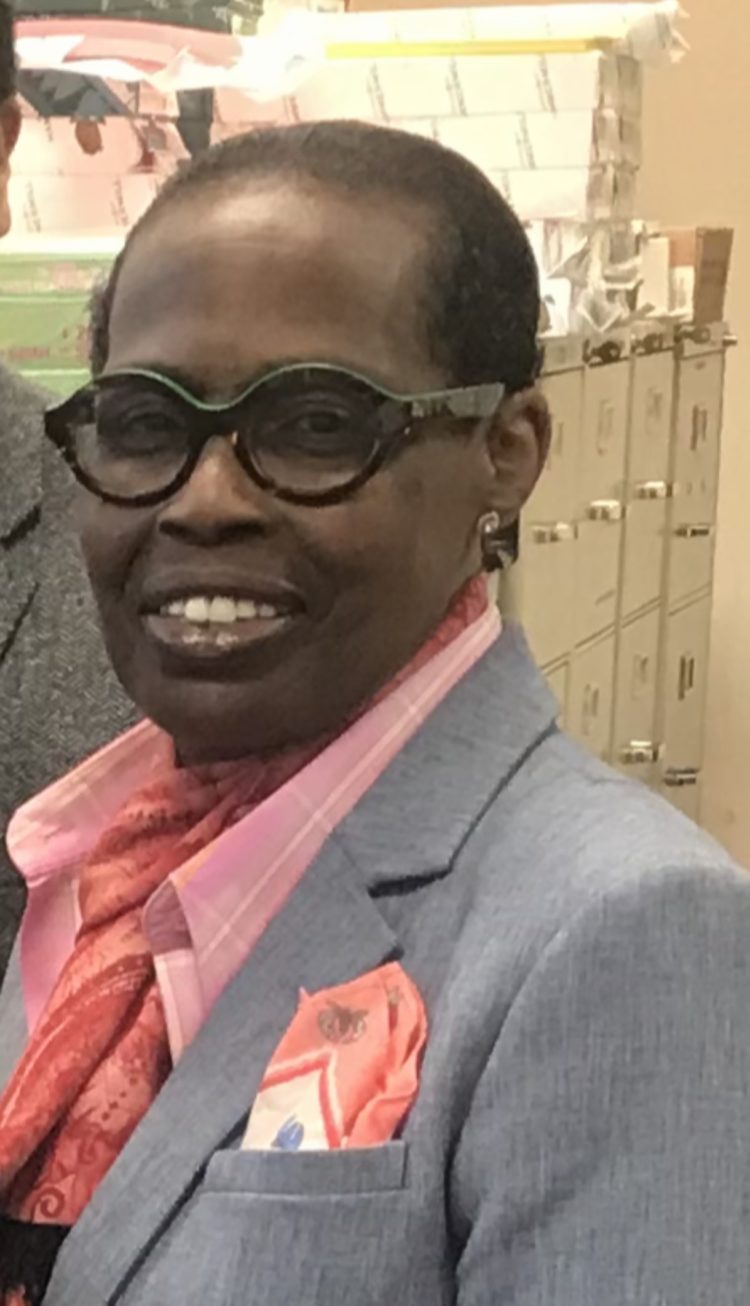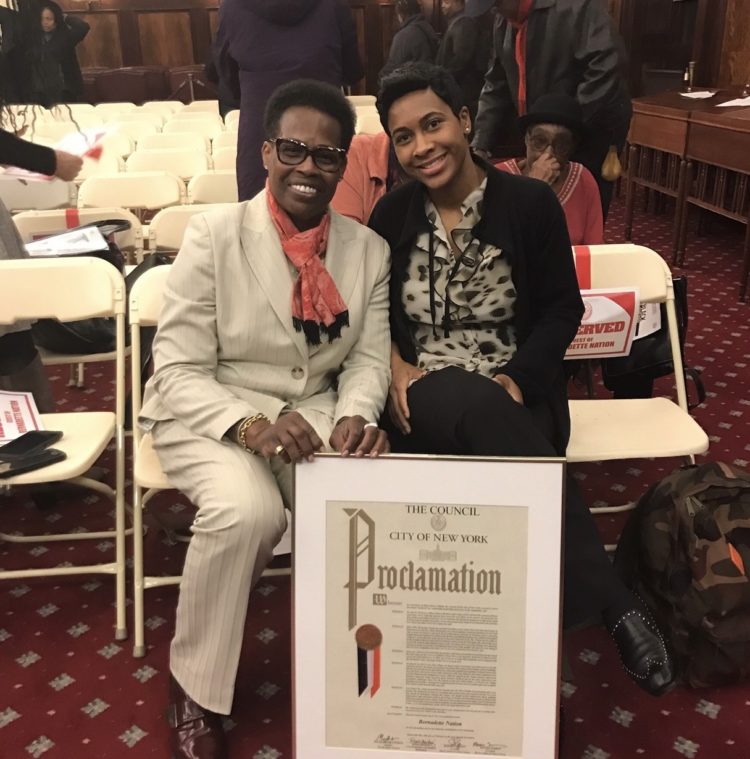The pandemic has pulled the rug from underneath many small businesses all over New York City. Restaurant closures have been making headlines, but all sorts of companies have been suffering from the effects of the coronavirus. A recent report by the Partnership for New York City, an influential business group, finds that, by the time the pandemic is over, one-third of the city’s 240,000 small businesses could be out of business.

We caught up with Bernadette Nation, an executive director at New York City’s Department of Small Business Services (SBS), the City’s government agency that supports entrepreneurs at various stages of their growth process. If you are a business owner currently facing difficulties, or if you are thinking of setting up a new business in New York City, you may want to read this interview.
Your career has been one long fight for social justice. What drove your desire to help people in New York City’s underserved communities?
I’ve always lived in what may be considered underserved communities, but I also don’t think of it as underserved because of the way society looks at it. I see it as a village of people that a lot of good comes out of. The resources might be lacking, but information is also lacking. People don’t know how to go about finding the right information.
Back in the day, before computers and the internet, information was hard to find. I was trying to become a fashion photographer after I graduated from art and design high school. At City College, in my first year, I studied metalworking and jewelry making and I was doing photography on the side. When I graduated, I went into special education because that’s where the jobs were.
As a special education teacher, I worked with at-risk adolescents. They needed special attention. They were minorities—African Americans, Caribbean Americans, or Latino Americans mainly—or white Americans from low income households who were emotionally challenged and had learning disabilities. For many of them, their nuclear parents weren’t around, and they were raised by their grandparents. We had 18-year-olds who read at a kindergarten level, but that didn’t mean they could not be taught.
Children can feel, better than adults, whether you like them. My job was about helping them to acquire the skills that would help them get a job when they became adults, teaching them how to become young men and young women, and also helping them think about the future and planning their life.
We did well. We got them in their last semester, and out of 50 students in our five-year program, 34 are now tax-paying citizens. We would teach them to rehab a brownstone, teach them how to become handymen, and some of them now work for themselves, as entrepreneurs.

You currently work for the City of New York helping small businesses grow. What are some of the challenges you face in your day to day work, and what are some of the achievements you are most proud of?
The unit that I oversee is unique. We act as liaison between the small business owners and government and respond to physical incidents that impact their business operations. We work with NYC Emergency Management and respond to those commercial incidents (fires, water conditions, building collapses, natural/manmade occurrences) and do our best to assist or mitigate those impacts on their business operations. New York City is the economic capital of this globe and our small businesses are the backbone of our economy. They need the support from our public services to stay in operations.
Entrepreneurs know, from the meaning of the word, that they are entering into a risk. I always tell entrepreneurs that what makes their business legal is their ability to pay taxes every year. I love it when entrepreneurs come to us when starting their business, but mostly they call SBS when they run into issues, like not having the right license.
I always suggest that entrepreneurs do the research first. You might be the best at making that hamburger, but if you don’t know the City’s rules and regulations you could run into trouble. There’s a lot you can find out with a simple Google search.
If you have a multi-level issue with the Department of Finance, or the Department of Buildings, you might get a notice that could lead to your business getting shut down. When you get that notice, we advise that you call 311 and ask for the Department of Small Business Services. What makes my team so unique is that we get referrals from everywhere, whether it’s people going to their local council member or state senator, or just finding us through Google.
We go to visit the business, and we give them the hands-on resources they need because we are a business-friendly agency. SBS is here to help you figure out your issue, and we communicate your issue to the appropriate agency. The fact that I’ve been around for so long, eight years in the Giuliani administration, 12 years in the Bloomberg administration all the way to the De Blasio administration, that means I know how the City works.

For instance, the restaurant industry is one of the most important industries in New York City, but Covid-19 is shutting so many restaurants down. Now, outdoor seating is allowed, but you need a permit for that. Some restaurant owners didn’t know that. All they heard was that the Governor and the Mayor approved outdoor seating; they didn’t know they needed a permit to sit customers outside their restaurant; then they get fined.
Or a lot of immigrant restaurant owners, they just go ahead and build a patio in their restaurant, without a permit, because that is how they do it in Barbados, in the Dominican Republic, in their home countries. And they get a large fine. Our job is to prevent those kinds of things from happening.
The Covid-19 pandemic has forced many small businesses to shut down, many of them owned by Black entrepreneurs. How do you think minority business owners can bounce back from this crisis?
New York City has resources. Just cross the Hudson River and go to Newark, you will find that they don’t have the resources NYC has, but it’s much, much harder for minority-owned businesses to succeed in NYC, because of the lack of information in minority communities.
If I take a white chef who went to culinary school and wants to open a restaurant, and I compare him with a Black chef who is exactly in the same situation, I find that maybe the white chef knows that he can take out a loan for operating expenses.
Now, if we look at immigrant business owners, especially Black business owners, we find that many of them saved their money for, like, 20 years. A lot of them open a restaurant to service their community, like the Jamaican community for instance, but they end up sinking all their money into paying the three months deposit to the landlord, or decorating the place, and they run out of money before looking for a bank loan. A white business owner typically would put that money into the bank and ask for the bank loan immediately.
We have relationships with 40+ small business lenders who can get business owners capital, if they have the collateral. If you’re an entrepreneur who comes with nothing, you are exposed, especially because you don’t own your restaurant.

At SBS, we know how to think creatively to help the business owner. There’s those who think they have a great idea for a business, and those who are already in business and are affected by Covid-19. We must recognize that not everyone is designed to start or run a business, and that’s why most businesses fail within the first two years. I always try to be real with aspiring entrepreneurs.
First, you have to know your business. Second, you have to constantly be thinking of how to make your business better. Now, with Covid-19, we realize that the pandemic has hurt everybody, even those who are used to not having any issues, but it has hit Black people disproportionally.
I was getting a lot of calls from white business owners, again because they knew where to go to get the information. Some minority business owners come to us, and they have a phone number, but they don’t even have an email address. During Covid-19 we have helped quite a few minority owned or Black businesses with creating an email address, which helped them apply for grants. The pandemic has put many Black people into unemployment but if they want to start a business and have a very good idea of what it takes to run that business, then SBS can help them.
